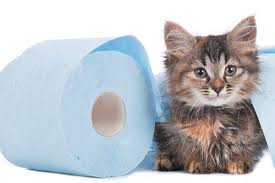
A cat’s instinct is to use litter boxes appropriately. However, sometimes social, environmental, and medical problems can interfere with that.
The litterbox isn’t cleaned to their liking:
The easiest way to control litter box odor is to clean it every day and use unscented litter. Using scented litter, adding a scented additive or a plug-in air freshener right by the litter box disrupts the cat’s sense of ownership over the space.
Spot cleaning your cat’s litter box every day and fully changing out the litter at least every week will help keep the smell down. If you absolutely must use something to combat the smell, try a thin layer of baking soda at the bottom of the box.
Conflicts with people or other pets in the house:
A common reason for cats to be urinating outside of the litter box is that they are feeling insecure or unsafe about their territory.
If your cat is getting interrupted while they are trying to use the litter box or if their social standing in the house is threatened by one of their roommates (toddling, furry, or otherwise), they may react by peeing outside of their litter box, either in more socially important areas, or areas where they’ll be able to escape from conflict. The solution here depends a bit on the setup in your home, but a couple of things to note:
Be mindful of what is around and make sure that wherever their litter box is, your cat feels safe.
Rule out medical causes:
If nothing has changed, yet your cat’s still not using the litter box, it could be related to a medical issue. Pain during urination can cause cats to have negative associations with their litter box, and the longer it goes untreated, the harder it will be to rebuild that association to something positive. If your cat is peeing outside of the litter box, talk to your veterinarian about getting a urinalysis.
